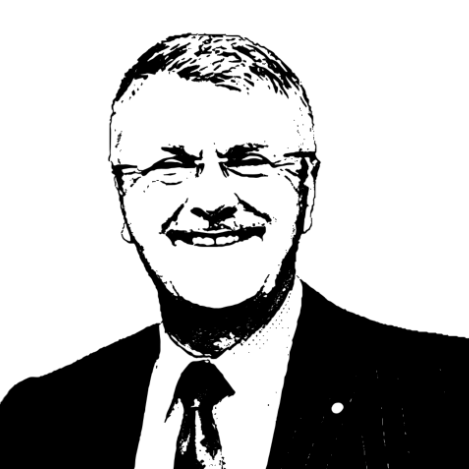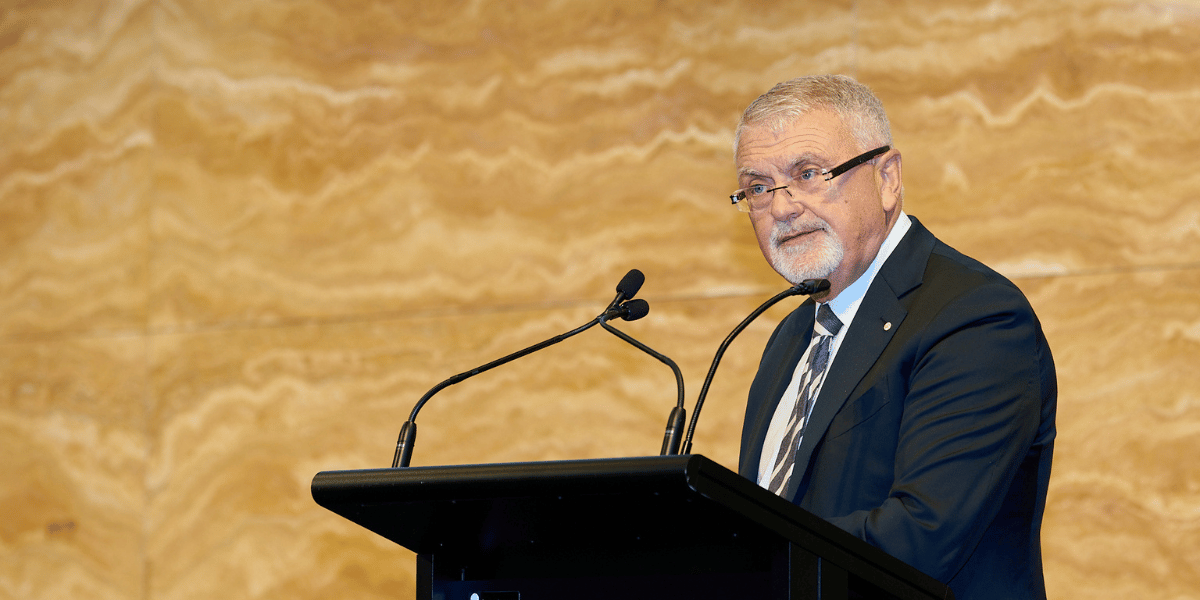4 September 2023
I have been fortunate to enjoy a long working life: 20 years as an academic, 20 years as a public servant and, finally, 15 years (and counting) in a portfolio career that embraces private, public and community sector organisations.
The glue that binds that disparate career together is my abiding interest in the significance of public policy and the vocational value of public administration, often undertaken in a challenging environment of fierce political contest. I find all aspects of public service fascinating. Observers sometimes say, not necessarily kindly, that is because I’m a consummate bureaucrat.
One consequence of that inherent trait is that I save and file notes. I keep records. It is for that very reason that I can assure you that in the James Martin Institute I have found an intellectual home for which I’ve searched for more than two decades.
On 7 November 2005, when I was Secretary of the Department of the Prime Minister and Cabinet (PM&C), I was presented with the opportunity to launch a book on public policy for the Academy of the Social Sciences in Australia. In reflecting on my years of university-based research, I vented my frustration at how so much policy-relevant academic enquiry had so little direct influence on political decision-making.
I was not apportioning blame. I appreciated how irritatingly “other worldly” public servants found many university researchers, as they sought to engage with them in turning their ideas into practical proposals. Why couldn’t academics climb down from their ivory towers and engage in the cut-and-thrust of political life? Why couldn’t they stop writing critical commentaries in arcane language in peer-reviewed journals and seek instead to have impact in the real world?
Equally, I understood the fears of my erstwhile academic colleagues. They worried that if they engaged too deeply in the iterative process of policy design, with all its necessary compromises, that they might place at risk their intellectual integrity. What I extolled as evidence-based policy they perceived, too often correctly, to be little more than policy-based evidence. They worried that their research, intermediated by public servants, would be used in a manner and for purposes that they had not intended.
Yet, I concluded my speech, if academics did not more willingly engage, the fast-expanding field of external advice would be taken over by management consultants and advocacy organisations. That conclusion was as obvious as it was prescient.
Then, in May 2011, when I had just taken up the role of Chancellor at Western Sydney University, I wrote a piece for the sadly defunct Australian Literary Review. It was motivated by a recent comment of my successor at PM&C, Terry Moran. He opined that too much relevant academic research was still getting lost in translation. I agreed. More specifically, in 2013, I bemoaned the fact that university economists exerted so little beneficial impact on public policy decisions.
In those articles, I sought to articulate the manifold reasons for the great cultural divide that separated academia from the world of public administration and politics. I extolled the valuable contribution that university research could make to better-quality, more effective, longer-term policy decision-making, if only a suitable mechanism could be found. In truth, I feared that my noble sentiments fell as rain on the corrugated roof of Australian public life.
Fortunately, that was not the case. In a boldly innovative, genuinely world-leading decision, the NSW Government – and I mean here, successive governments – decided to fund a new body to improve the dire situation in which empirical, pragmatically-orientated academic research too rarely informs the design and delivery of political decisions. And, in spite of all the anticipated risks, an increasing number of NSW universities have now made their financial and administrative commitment to supporting this unique joint venture.
That partnership was, of course, the James Martin Institute for Public Policy. It was established in 2021 as an independent, non-partisan Institute which would, over time, build close partnerships between governments, public administrators and academic experts, with the ambitious goal of generating better-informed but practical solutions to the wicked problems of public policy.
The Institute, since its inception, has taken pride in providing a neutral place in which those responsible for setting government policy directions, presenting public service advice and undertaking university research can talk openly as partners. No party needs to fear that the distinctiveness of its particular role will be undermined or undervalued.
Two years on, I am hesitant to declare victory. What I can proclaim, with my hand on my heart, is that extraordinary progress has been made in a short period. Here are five key pieces of evidence:
1. Partnerships across the NSW Government and, more broadly, parliament have deepened; university engagement has widened; and public sector participation has intensified. The debilitating distrust and suspicion that too often weakens effective intellectual collaboration have been broken down. In their place has come mutual respect and a profound recognition that a dialogue of ideas can generate policy perspectives that are greater than the sum of their individual parts.
2. The Institute has successfully undertaken 12 high-impact projects already. Demonstrably, they are making a difference. The future pipeline is strong.
3. The second round of Policy Challenge Grants is just being concluded. Once these grants are awarded, almost a million dollars in funding will have been allocated to relevant policy-orientated research. What is distinctive about these grants is that the applicants have to show evidence of purposeful collaboration between university researchers, public servants and government advisors.
4. Our digital publication, The Policymaker, launched just over a year ago, is stimulating increased debate, particularly amongst public servants and political advisors. Readership is increasing month-by-month.
5. A unique Fellowship program has been established to support policy innovation. The first two Fellows – one from the public service, one from academia – have led cutting-edge research. Others will soon follow in their footsteps.
And, here are some statistics. The Institute’s records show that in the last two years there have been 17,000 engagements with policy experts; 140 hours of facilitated collaboration; and more than 100 connections forged between policymakers and university-based experts. Over 1,200 senior leaders from government, parliament, academia, industry, community, and university have participated in events.
But that dry enumeration cannot capture the enthusiasm, commitment and excitement of people coming together with a shared vision of how academic research can contribute to the goals, directions and complexity of public policy.
The model is working. In the next two years – with the continued strong support of the NSW Government and ministers; with the active participation of more of the state’s universities; and with the widening participation of academics, senior public servants, and ministerial advisors – we will progressively scale up.
I do urge all participants to be an active part of our journey. Together we will forge a distinctive and path-breaking collaborative model that ensures that academic research can be translated into a form fit for government purpose. At a time when the institutional structures of democratic governance seem to be cracking, and public confidence in political decision-making is at low levels, JMI provides innovative hope. The Institute provides a potent means by which NSW can take a jurisdictional (indeed international) lead in restoring faith in the benefits of evidence-based policy born of academic enquiry.
Professor Peter Shergold AC is Chair of the James Martin Institute for Public Policy.
This is an edited version of the speech he gave at The Policymaker Summit on 7 August 2023 at UNSW Sydney.
Image credit: James Martin Institute for Public Policy
Features
Rys Farthing and Lorna Woods
Ehsan Noroozinejad Farsangi
Subscribe to The Policymaker
Explore more articles
Features
Rys Farthing and Lorna Woods
Ehsan Noroozinejad Farsangi
Explore more articles
Subscribe to The Policymaker








